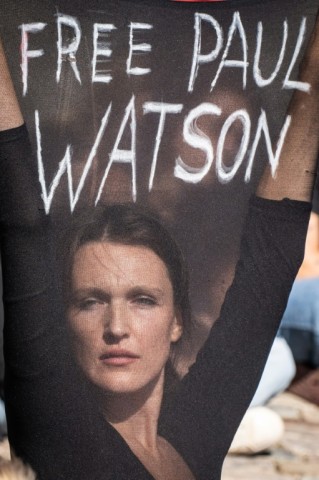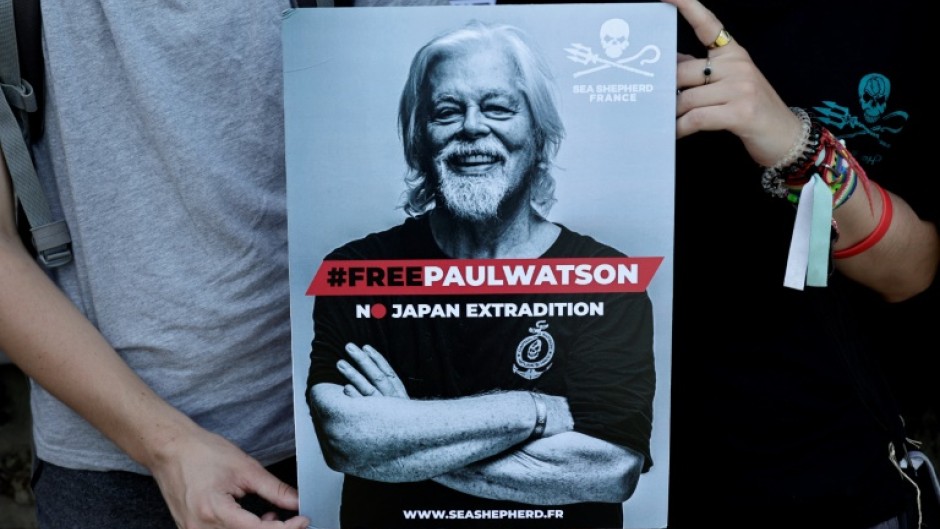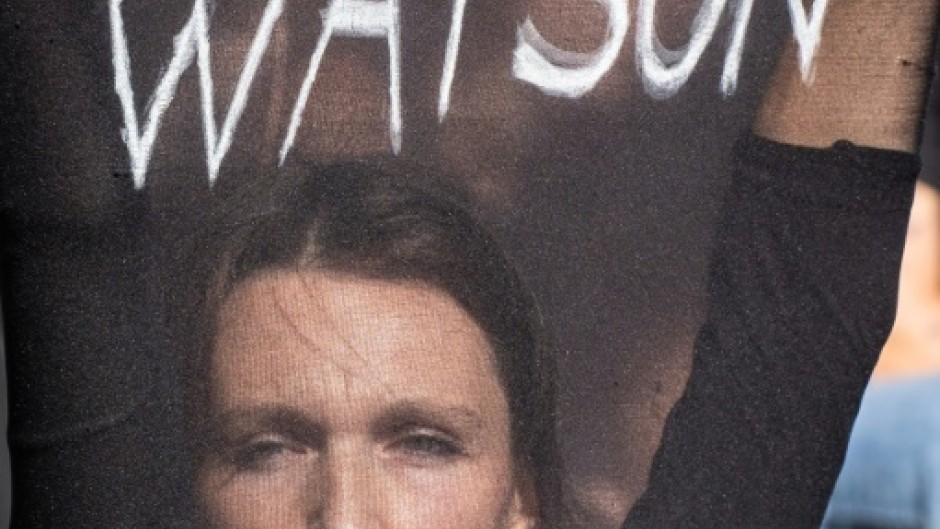A Greenland court decided Wednesday to hold US-Canadian anti-whaling activist Paul Watson an additional 28 days pending a decision on his extradition to Japan, an anti-whaling group said.
Watson was detained in Nuuk, the capital of the Danish autonomous territory, in July on a 2012 Japanese arrest warrant that accuses him of causing damage to one of its whaling ships in the Antarctic in 2010 and injuring a whaler.
"He has been given a further 28 days' detention, which is scandalous," Lamya Essemlali, head of the anti-whaling organisation Sea Shepherd's French branch, told AFP after Wednesday's detention hearing.
Greenland's police also confirmed the extension in a statement, without saying when a new hearing would be held.
She said the next hearing would be held on October 2, adding that his lawyers would appeal the decision.
Lawyers for Watson, 73, told AFP ahead of the hearing that they expected the court to extend his custody as a legal review of the extradition request continues.
"We are disappointed, even though we were expecting this decision," Essemlali said.
Watson, who featured in the reality TV series "Whale Wars", founded Sea Shepherd and the Captain Paul Watson Foundation (CPWF) and is known for radical tactics including confrontations with whaling ships at sea.
He was arrested on July 21 when his ship, the John Paul DeJoria, docked to refuel in Nuuk on its way to "intercept" a new Japanese whaling factory vessel in the North Pacific, according to the CPWF.
Japan accuses Watson of injuring a Japanese crew member with a stink bomb intended to disrupt the whalers' activities.
His lawyers say he is innocent, adding that they have video footage proving the crew member was not on deck when the stink bomb was thrown, but the Nuuk court has refused to view it at custody hearings.
According to Essemlali, "the judge agreed to look at the Japanese footage but refused to look at ours".
"With their images we can't see where the shot landed, unlike ours," she said.
- 'Several legal steps' -
The custody hearings are solely about Watson's detention, and not the question of his guilt nor the extradition request.
The decision about his extradition will be taken independently.
Greenland police must first decide whether there is a basis for extradition, after which the Danish justice ministry will decide whether to proceed with an extradition.
No date has been announced for those decisions.
The justice ministry told AFP the review of the extradition request was "an ongoing process".
"It is a process with several legal steps, and the Ministry of Justice is currently awaiting the legal assessment from the Greenland police and the Director of Public Prosecutions," it said in an email.
French President Emmanuel Macron's office has called for Watson's release, as have around 100,000 people who have signed a global petition.
Watson is a controversial figure among environmentalists because of his confrontational approach, which he calls "aggressive non-violence".
He told AFP in an interview at the Nuuk prison in late August that he was continuing his fight from his cell.
- 'Bright side' -

"If they think it prevents our opposition, I've just changed ship. My ship right now is Prison Nuuk," he said.
He said Japan was using him "to set an example that you don't mess around with their whaling".
Essemlali, one of his strongest supporters, told AFP this week that while Watson's arrest was "very unfair", it had provided an opportunity to shed light on Japan's whaling practices.
"The bright side of it is that there has never been as much (of a) spotlight on Japanese whaling."
"This is what we've been doing for so long, to expose what Japan is doing in Antarctica, how Japan is violating the global moratorium on whaling," she said.
Shintaro Takeda, a former harpooner who now works on land for Japan's whaling company Kyodo Senpaku, who witnessed some of the confrontations, told AFP that Watson's actions had endangered lives.
The activists "tried to wrap ropes around our propeller, and all kinds of things, which escalated year by year," Takeda, 54, said in an interview in Tokyo.
Watson has a ship stationed in each hemisphere, ready to jump into action if one of the countries that still allow whaling -- Iceland, Japan and Norway -- were to resume the hunt.
By Camille Bas-wohlert


